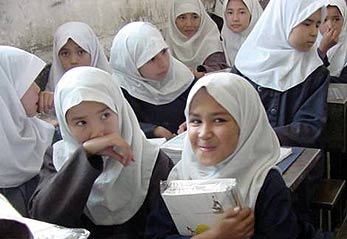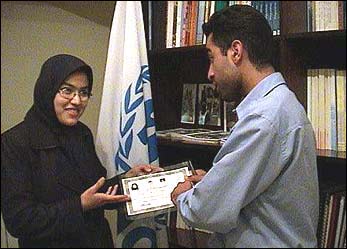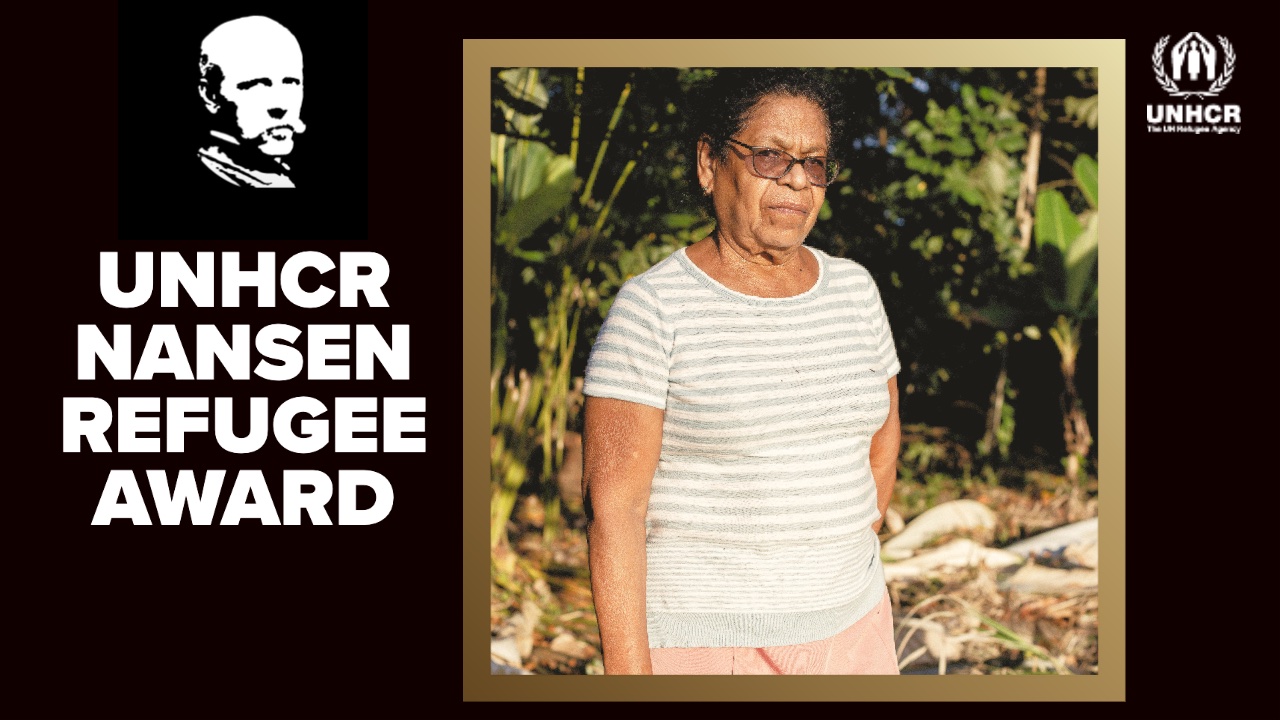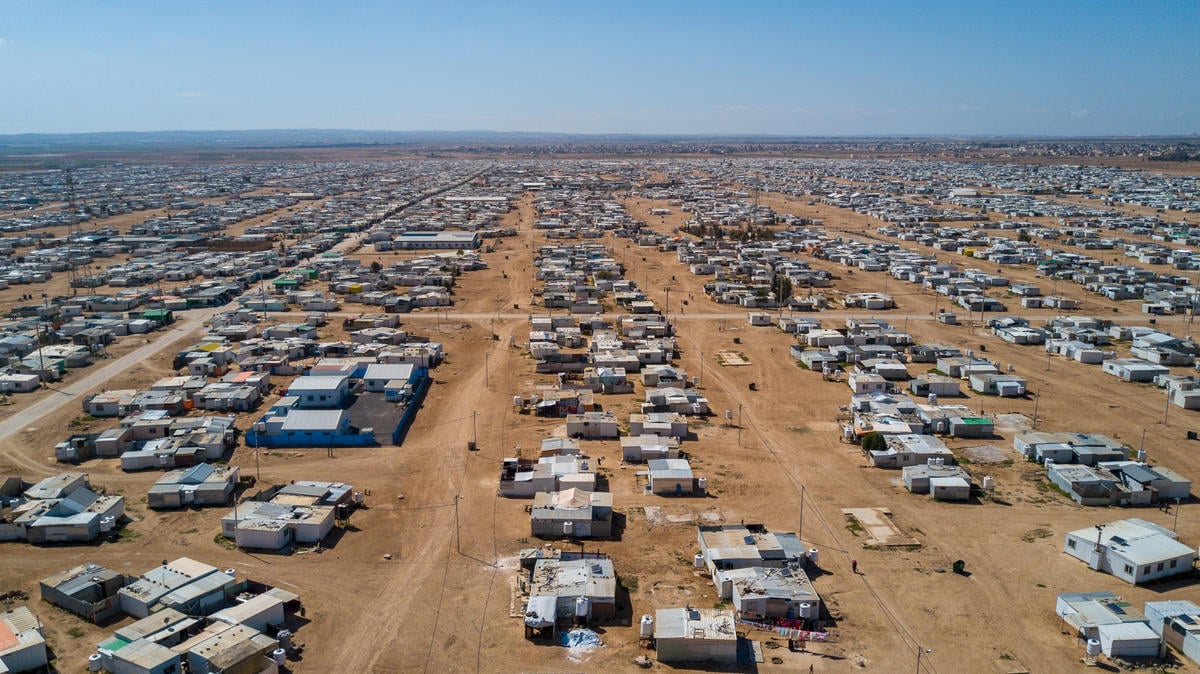Feature: Young Afghans in Iran read into the future
Feature: Young Afghans in Iran read into the future

TEHRAN, Iran (UNHCR) - They were born in Iran or fled Afghanistan with their families when they were too young to remember their homeland. But all speak passionately about the contribution they want to make to their country's reconstruction.
"Do you plan to return?"
"Yes!" the group of enthusiastic young men and women answer emphatically.
As registered Afghans holding "blue cards", they were all able to attend Iranian state schools. This year, the UN refugee agency continues to support Iran's Ministry of Education and Training in order to ensure access to free education at primary and secondary level for more than 192,000 documented refugee children throughout the country - 167,000 of them Afghans.
Now, some of those with their diplomas safely secured have gone a step further and graduated from a month-long UNHCR-backed literacy teacher training programme.
"I've always considered it a duty to help my country and do something for the next generation," says 18-year-old Hanifeh. "I've just completed my high school diploma and I really appreciate that I had that opportunity here in Iran."
The mature and quietly confident teenager adds, "The literacy training course has given me a skill that I can put into action quickly in Afghanistan. I know the situation there is very difficult right now - particularly in comparison to what we're used to here. Despite that, I'm willing to go back to work as a teacher."
Hanifeh is not alone. She is one of more than a thousand - mainly young - Afghan men and women who completed the UNHCR-funded course during 2002. Run in conjunction with the refugee agency's main governmental counterpart, BAFIA (Bureau for Aliens and Foreign Immigrants Affairs, the Iranian government agency responsible for refugees), and LMO (Literacy Movement Organisation of Iran), it was the first programme of its kind sponsored by UNHCR in Iran since 1995.
"There are many educated young Afghans in Iran, so there was a lot of interest among them in the programme," says UNHCR Associate Community Services Officer Afsaneh Ashrafi.
The literacy teacher training classes were conducted by LMO in dozens of centres around Tehran, Sistan-Baluchistan, Khorassan and Qom.
Participants like Hanifeh were selected with the help of a refugee liaison committee set up by UNHCR and used for the first time in Iran in 2002. And they are eager for more.
"The feedback from the students was very good," notes Ashrafi. "Their only complaint was that the training was too short."
"Teaching the alphabet is not as easy as you think," says 25-year-old Mohammad Ali.
And being a literacy teacher is about more than teaching the alphabet. The students had to examine the whole issue of adult learning, how to promote the importance of literacy and make the skill relevant to people's everyday lives and their role in the family.
"Adults learn in a very different way from children," explained Ashrafi. "There can be a lot of resistance and they may be very shy. But being literate can have a positive impact on how a parent interacts with his or her children. It can enhance one's status within the family and make everyday life, such as managing the family income, easier."
Mohammad Ali and his 23-year-old sister Halimeh did the course together at an LMO centre in Tehran. Determination is written all over their faces. Like others who participated in the training course, the siblings have already taught in the informal Afghan community-based schools in Iran.

"When I go back, I want to either go to university or set up a school of my own," says Halimeh. And listening to her, you believe she could do both.
By early January 2003, almost 380,000 Afghans had returned home from Iran, just over a quarter of million of them with assistance from UNHCR, since a voluntary repatriation programme was set up in April 2002.
But the refugee agency firmly believes that for repatriation to be a sustainable, durable solution to the Afghan refugee problem, it must form part of the "4Rs" along with reintegration, rehabilitation and reconstruction within Afghanistan itself.
The literacy teacher training programme, as with all of UNHCR's capacity-building programmes for Afghan refugees in Iran, is linked to the voluntary repatriation programme.
"The idea is to provide people with skills they can use upon their return to Afghanistan to help themselves, help others and contribute to the rehabilitation and reconstruction of their country," explains UNHCR's Ashrafi. "We made it very clear from the beginning that this was about obtaining a skill to bring back to Afghanistan."
Afghanistan's educational system badly needs more support. The new Afghan administration is making strenuous efforts to get it back on track - reopening and repairing schools and universities, recruiting teachers and encouraging children to enrol. Progress is being made: according to the Ministry of Education, about 3 million youngsters sat for primary and secondary school examinations in 2002.
But the obstacles are huge - shortages of buildings, basic equipment and skilled teachers - and the need is extreme. Afghanistan has one of the highest illiteracy rates in the world. Of those who returned from Iran with UNHCR's help in the past year, 70 percent said they had no education.
Twenty-one-year-old Abdullah points to the important link between education and Afghanistan's overall reconstruction. "If there is industrial development - if jobs are created, factories rebuilt - you need educated, literate people to do the work," he says.
Abdullah and the other graduates of the literacy teacher training course believe that Afghanistan's problems were exacerbated by the lack of access to education in the first place.
"Cultural poverty is the basis of all poverty," says Mohammad Ali. "If people can read and write, they can find out more about the world. Maybe a higher literacy rate could have helped prevent the wars."
Both Abdullah and Mohammad Ali want to set up groups like LMO in Afghanistan. Already, they have been discussing their ideas with other like-minded young Afghans in Iran.
"An interesting thing to come to out of the literacy training course was the solidarity that built up within the group," says Mohammad Ali. "It gave us an even greater incentive to do something to help our country."
The issue confronting them now is how and where to start. They are anxious to contact people in Afghanistan, to find out the needs, figure out the approach to take, come up with strategies and find funds.
It will be easier said than done. But Mohammad Ali believes the young Afghans in Iran have a particular role to play.
"The generation brought up in Iran is a big asset to Afghanistan," he says. "We are in a position to promote the importance of education because of the education we have received here in Iran. All of us who graduated from this course can make a difference because each can teach many others. If we can do that in a structured way, it will be very effective."
By Laura O'Mahony
UNHCR Iran








